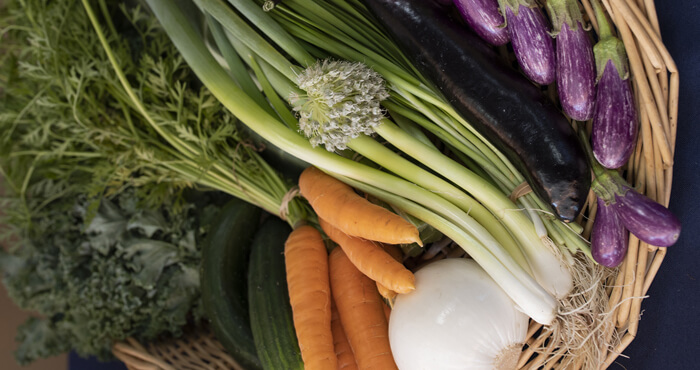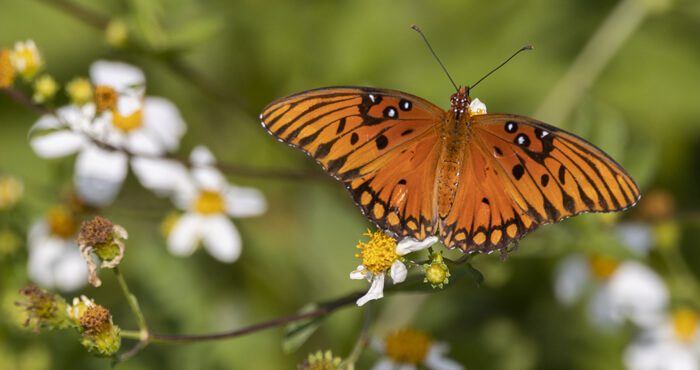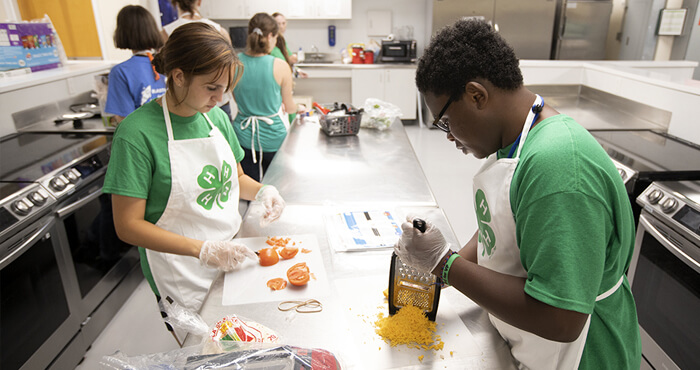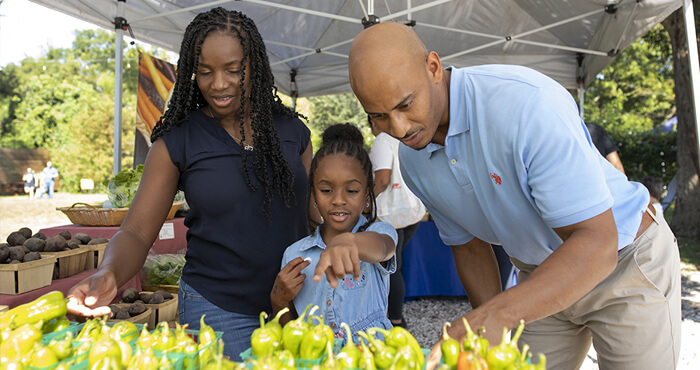
Lawn and Gardening FAQ
Diseases & Pests
How do I get rid of fire ants?
Fire ants are a harmful invasive species that can be found all over Florida. Read our fire ant guide for information about managing these pests.
How do I get rid of cockroaches?
Read our cockroach guide to learn how to manage these common pests.
The leaves on my plants are turning yellow with black spots. What causes this problem, and what can I do about it?
It sounds like your plant may be suffering from a leaf spot fungi. To treat the problem, you should remove affected leaves and apply a fungicide. Be sure to follow all safety precautions and label recommendations.
To find out which fungicides will work best on your plants, contact or visit your county Extension office.
The leaves on my citrus trees are curling up, and they look chewed on. What can I do?
Applying botanical insecticides, horticultural oils, and insecticidal soaps to your plants can deter hungry insects. For more detailed information, read the articles "Insect Management in the Home Garden" and "Natural Products for Insect Pest Management."
If you need help choosing the right treatment for your plants or locating the recommended products, contact your county Extension office.
How do I get rid of crabgrass?
The best defense against weeds is a healthy lawn, so try to keep your lawn happy by watering, mowing, and fertilizing appropriately. (For more information, check out Lawn Care topics.) However, some degree of weed control is often needed despite your best efforts.
Preemergent herbicides containing pendimethalin are typically the most effective way to control crabgrass, and the best time to apply these herbicides is in the spring (early February for South Florida, mid-February for Central Florida, and early March for North Florida). Be sure to follow all directions and safety precautions whenever you apply chemicals.
Read the Crabgrass publication on the Gardening Solutions website for more on how to manage crabgrass growth.
To learn more about controlling crabgrass and applying herbicides, you can also visit your county Extension office, where you can talk to horticulturists and master gardeners who have specialized knowledge of your local area.
My tree is covered with these small gray plants that seem to be killing it. What can I do?
Those gray plants are commonly known as air plants or bromeliads and are generally harmless to trees. These unique plants are "epiphytes", which means they gather moisture and nutrients from the air instead of from the soil. They simply need the trees for support, much like the way birds use trees as a place to build their nests.
Over a dozen species of air plants are native to Florida, and many--including the well-known Spanish moss--fall under the scientific genus Tillandsia. You can view photos of native air plants on the EDIS website.
Although air plants look gray, they still contain chlorophyll and photosynthesize like other plants. The gray color comes from fine scales that cover the plant’s thin leaves and help it to trap moisture. When wet, the plant’s green color shows through the scales.
Again, air plants are typically harmless and cause problems only when present in great numbers, which in rare cases may lead to limb breakage. If your tree looks sick, ask your county Extension office for help.
Fruits, Vegetables & Herbs
Can I grow hot peppers at home?
Depending on where you live, you may be able to grow hot peppers in your own garden. For more detailed information, read the articles about non-bell peppers, or contact your county Extension office.
Hurricane Preparedness
How do I prepare my yard for hurricanes?
A comprehensive list of documents about storm preparation is included in Chapter 2 and Chapter 7 of the UF/IFAS Disaster Handbook.
Our Disaster Prep and Recovery page provides general information about disaster preparedness, including links to hurricane-specific websites and publications.
How should I prune my trees in preparation for hurricane season?
The EDIS article, “How to Minimize Wind Damage in the South Florida Landscape” provides a list of trees that vary in wind resistance and tips for pruning your trees in preparation for a storm.
Plant Selection
What can I plant in my yard?
The Florida-Friendly Landscaping™ Guide to Plant Selection & Landscaping Design contains information on how to design and maintain a beautiful landscape that saves water and reduces waste and pollution. For recommendations on landscaping design and plant selection, read "Right Plant, Right Place." For general information about home landscapes and gardens, check out our Lawn and Garden section.
How do I select and care for lawngrass in Florida?
Visit our Choosing a Lawngrass page to learn more about home lawn care. If you still have specific questions, contact your county Extension office and ask for a volunteer Master Gardener or county horticulture agent.
Pesticide Licensing
How do I get a pesticide license in Florida?
For the most part, homeowners do not need a license to buy and use chemical pesticides, as long as they buy the product themselves, use their own equipment, and apply it only to their own yard. In all cases, the label is the law--read and follow ALL label instructions. If you need help identifying a pest or finding the right pesticide, contact your county Extension office.
If your pest problems require materials that you can not buy without a license, you should contact a pest control operator (check your local phone book listings). Please read our homeowners guide to pesticides for more information.
Visit our Pest Control & Pesticide Licensing page for more on how to become a certified pesticide applicator.
Agricultural producers or others who wish to get a commercial pesticide applicator license can check the "Licensing of Agricultural Animal Pesticide Applicators in Florida" page on UF/IFAS Pesticide Information Office’s website. Your best bet may be to contact your county Extension office.
How do I get CEUs to maintain a pesticide license?
Florida pesticide applicator licenses have to be renewed to stay valid. Applicators can re-take the pesticide licensing test or attend classes to earn Continuing Education Units (CEUs) to renew their licenses. To find out what CEUs you need for a particular license or to take a test, contact your county Extension office.
To learn about CEU requirements and locations to upcoming classes, visit the Florida Department of Agriculture's “Pesticide Applicator License Renewal” page.
Pesticide CEU modules are now available for purchase through the UF/IFAS Bookstore website.
School & Community Gardens
I want to teach children about vegetable gardening. What can you tell me about transplanting and plant care that would be useful for adults and children?
We have a number of fruit and vegetable gardening documents that might be useful to you. For specific information about school gardens, please read the article, “School Gardens—A Growing Part of Schools.”
How can I establish a community vegetable and/or flower garden as a community development or volunteer project?
At your county Extension office, you can find professional horticulturists on staff, as well as volunteers who have been certified as Florida Master Gardeners. These volunteers often get involved with community projects, sharing their gardening expertise with others who wish to learn.
Contact Us
Contacts & Resources
Resources
Other UF/IFAS Sites
- Gardening Solutions
- Entomology and Nematology Department
- Environmental Horticulture Department
- FAWN: Florida Automated Weather Network
- Florida-Friendly Landscaping™ Program
- Florida Master Gardener Program
- IPM Florida
- Pesticide Information Office
UF/IFAS Publications
- Florida-Friendly Landscaping™ Program
- Central Florida Gardening and Landscaping Fact Sheets
- Starting a Garden
State & Federal Agencies
- Florida Department of Agriculture and Consumer Services (FDACS)
- Florida Department of Environmental Protection (FDEP)
- Florida Energy Systems Consortium (FESC)
- U.S. Environmental Protection Agency (EPA)
- USDA Plant Hardiness Zone Map--U.S. National Arboretum
Organizations & Associations
- American Community Gardening Association
- American Horticultural Society
- Florida Native Plant Society
- Florida Nursery, Growers and Landscape Association (FNGLA)
- North American Native Plant Society
Other Sites & Publications
UF/IFAS Mobile Web Apps



.jpg)

.jpg)
